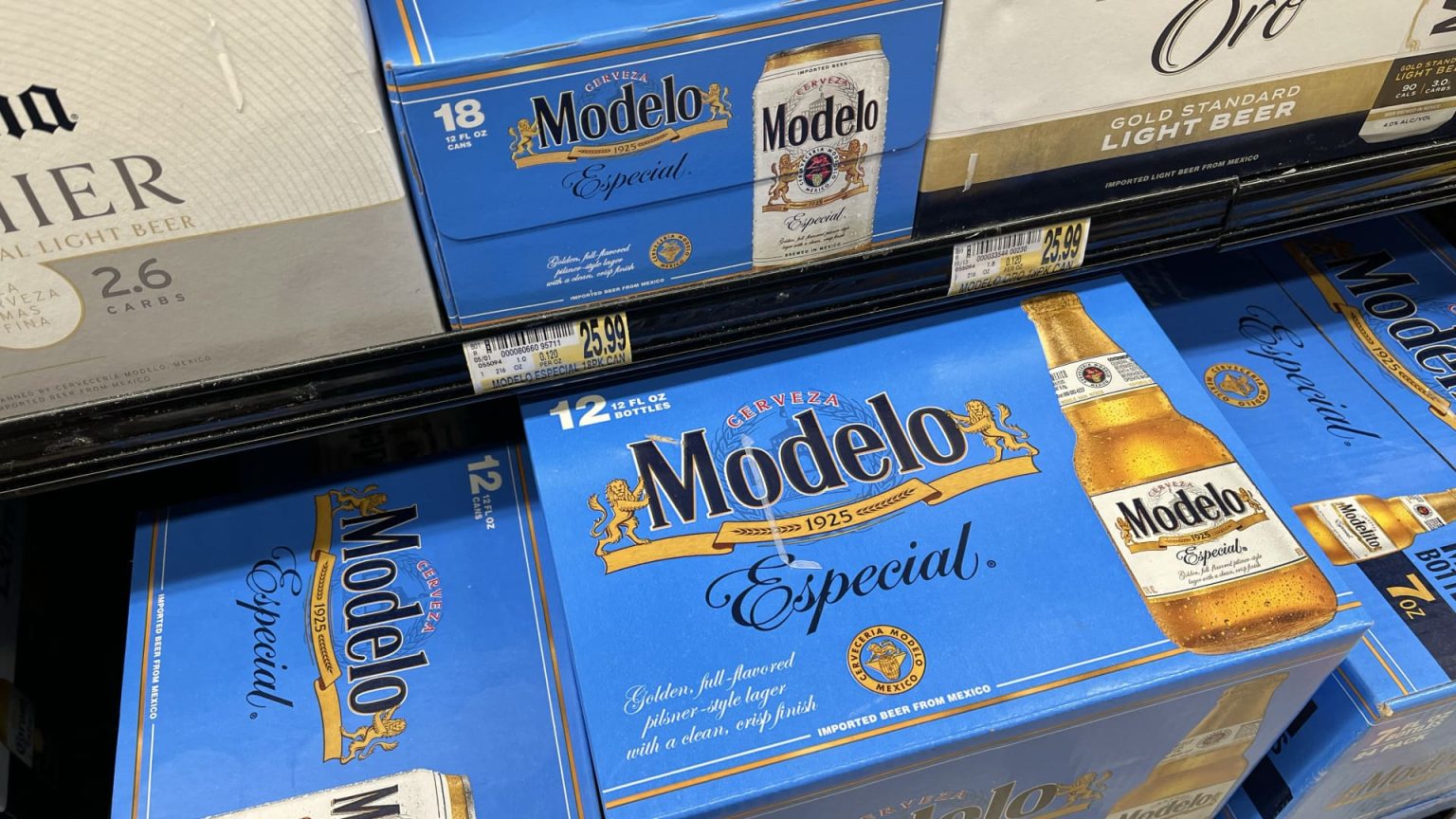In a recent financial report, Constellation Brands announced that its quarterly earnings missed analysts’ projections, primarily due to the impact of tariffs imposed by the U.S. government on imported goods. Despite facing challenges with profitability and weaker consumer demand, the company has maintained its financial outlook for fiscal 2026, indicating confidence in its ability to overcome these obstacles. Constellation Brands, known for its portfolio of Mexican beers, is navigating a complex landscape influenced by economic factors and consumer behavior.
| Article Subheadings |
|---|
| 1) Financial Performance Overview |
| 2) Impact of Tariffs on Profitability |
| 3) Sales Trends and Consumer Demand |
| 4) Company Outlook and Future Projections |
| 5) Insights from CEO Bill Newlands |
Financial Performance Overview
Constellation Brands reported a significant dip in its financial performance for the recent quarter. The company’s earnings per share (EPS) stood at $3.22 adjusted, falling short of Wall Street expectations of $3.31. Additionally, the reported revenue of $2.52 billion was also below the analysts’ forecast of $2.55 billion. This performance reflects the pressure on the beverage industry as it grapples with rising costs and changing consumer behaviors. The reporting period covers the three months ending on May 31, which marked the beginning of trade tariffs on imported beer.
Impact of Tariffs on Profitability
The imposition of tariffs has had a notable impact on Constellation’s profit margins. President Donald Trump’s administration introduced increased duties on aluminum and canned beer imports, with tariffs rising to 25% in mid-March and hitting 50% in June. These tariffs specifically affect Constellation’s operations as the company relies heavily on aluminum for its can production and primarily imports its beer from Mexico, including popular brands like Corona and Modelo. According to reports, the operating margin for Constellation fell by 150 basis points in the quarter, largely attributed to the escalating costs of aluminum, which compounded existing economic pressures.
Sales Trends and Consumer Demand
Sales of Constellation’s beer portfolio have seen a decline, driven by weaker demand from consumers. Reported net sales dropped by 5.8% compared to the previous year, impacted significantly by the company’s divestiture of its Svedka vodka brand and reduced beer shipments. CEO Bill Newlands pointed out that the company’s beer business, accounting for roughly 80% of revenue, experienced a 3.3% fall in shipment volumes. The decline has been particularly pronounced among Hispanic consumers, who make up about half of Constellation’s beer sales. Concerns surrounding Trump’s immigration policies have prompted this demographic to purchase less, further straining sales.
Company Outlook and Future Projections
In light of the ongoing challenges, Constellation Brands remains cautiously optimistic about its future. The company is projecting its comparable EPS for fiscal 2026 to fall between $12.60 and $12.90. Despite the current economic climate, Constellation anticipates its organic net sales will either decline slightly by 2% or possibly see a small increase of up to 1%. These projections reflect the company’s confidence in recovering demand and improving operational efficiency in the upcoming quarters.
Insights from CEO Bill Newlands
During the earnings call, CEO Bill Newlands emphasized the multi-faceted reasons behind the declining sales figures. He attributed part of the challenges to “non-structural socioeconomic factors,” suggesting broader economic indicators are at play. Newlands also noted that there has been a marked change in buying habits among consumers and hinted at the need for adaptation as the company seeks to re-engage market segments that have been reluctant to purchase due to sociopolitical tensions.
| No. | Key Points |
|---|---|
| 1 | Constellation Brands reported quarterly earnings and revenue below analysts’ expectations. |
| 2 | Tariffs imposed by the U.S. government are impacting the company’s profitability significantly. |
| 3 | Consumer demand, especially among Hispanic consumers, is declining due to socioeconomic factors. |
| 4 | The company maintains a positive outlook for fiscal 2026 despite the current challenges. |
| 5 | CEO Bill Newlands attributes challenges to broader socioeconomic issues affecting consumer behavior. |
Summary
Constellation Brands is currently navigating a challenging financial landscape characterized by reduced profitability and declining consumer demand, particularly impacted by tariffs on imports. The company, however, exhibits confidence in its future, aiming for steady revenue growth in the upcoming fiscal year. The emphasis on understanding customer behavior and adjusting strategies could be crucial for the brand to regain momentum in a competitive market.
Frequently Asked Questions
Question: What factors contributed to Constellation Brands’ recent financial challenges?
The company’s financial challenges stem from the impact of tariffs on imported beer and aluminum, rising costs, and reduced consumer demand, particularly among Hispanic consumers.
Question: How is Constellation Brands addressing declining sales?
Constellation Brands is focusing on adapting its strategies to engage consumers, particularly by analyzing changing buying behavior and refining its marketing approaches.
Question: What is the company’s outlook for fiscal 2026?
Constellation Brands remains optimistic, forecasting comparable earnings per share between $12.60 and $12.90, with hopes for either a slight decline or modest increase in organic net sales.


